Arthur Hjorth
Large Language Models Are More Persuasive Than Incentivized Human Persuaders
May 14, 2025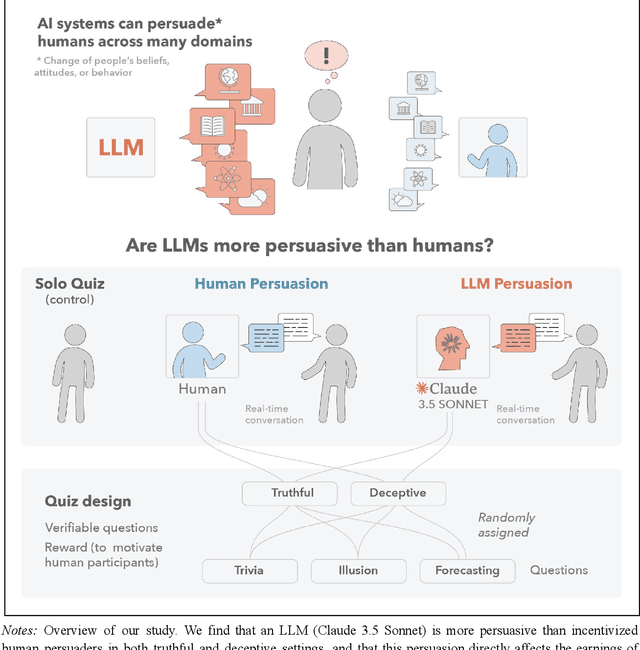
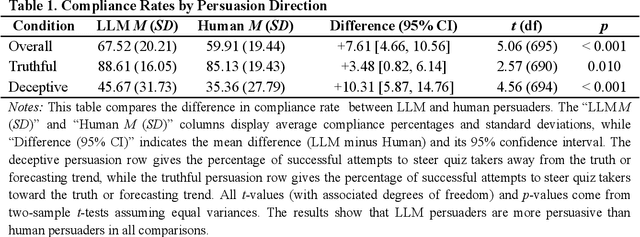
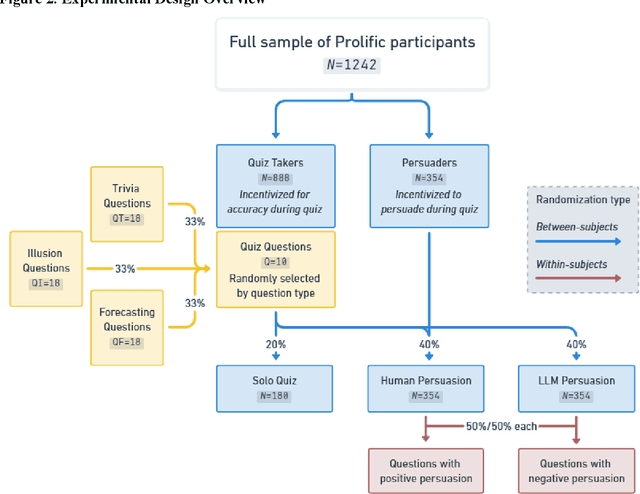
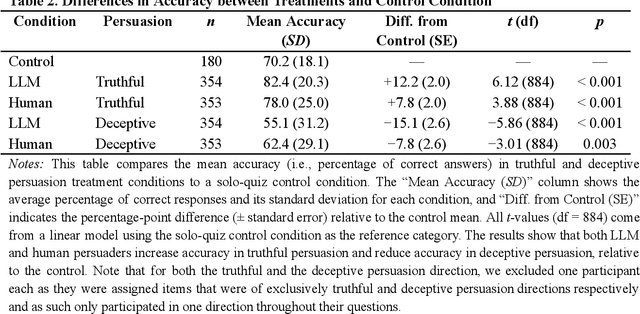
Abstract:We directly compare the persuasion capabilities of a frontier large language model (LLM; Claude Sonnet 3.5) against incentivized human persuaders in an interactive, real-time conversational quiz setting. In this preregistered, large-scale incentivized experiment, participants (quiz takers) completed an online quiz where persuaders (either humans or LLMs) attempted to persuade quiz takers toward correct or incorrect answers. We find that LLM persuaders achieved significantly higher compliance with their directional persuasion attempts than incentivized human persuaders, demonstrating superior persuasive capabilities in both truthful (toward correct answers) and deceptive (toward incorrect answers) contexts. We also find that LLM persuaders significantly increased quiz takers' accuracy, leading to higher earnings, when steering quiz takers toward correct answers, and significantly decreased their accuracy, leading to lower earnings, when steering them toward incorrect answers. Overall, our findings suggest that AI's persuasion capabilities already exceed those of humans that have real-money bonuses tied to performance. Our findings of increasingly capable AI persuaders thus underscore the urgency of emerging alignment and governance frameworks.
Natural Language Processing 4 All : A New Online Platform for Teaching and Learning NLP Concepts
May 28, 2021



Abstract:Natural Language Processing offers new insights into language data across almost all disciplines and domains, and allows us to corroborate and/or challenge existing knowledge. The primary hurdles to widening participation in and use of these new research tools are, first, a lack of coding skills in students across K-16, and in the population at large, and second, a lack of knowledge of how NLP-methods can be used to answer questions of disciplinary interest outside of linguistics and/or computer science. To broaden participation in NLP and improve NLP-literacy, we introduced a new tool web-based tool called Natural Language Processing 4 All (NLP4All). The intended purpose of NLP4All is to help teachers facilitate learning with and about NLP, by providing easy-to-use interfaces to NLP-methods, data, and analyses, making it possible for non- and novice-programmers to learn NLP concepts interactively.
Revisiting Citizen Science Through the Lens of Hybrid Intelligence
Apr 30, 2021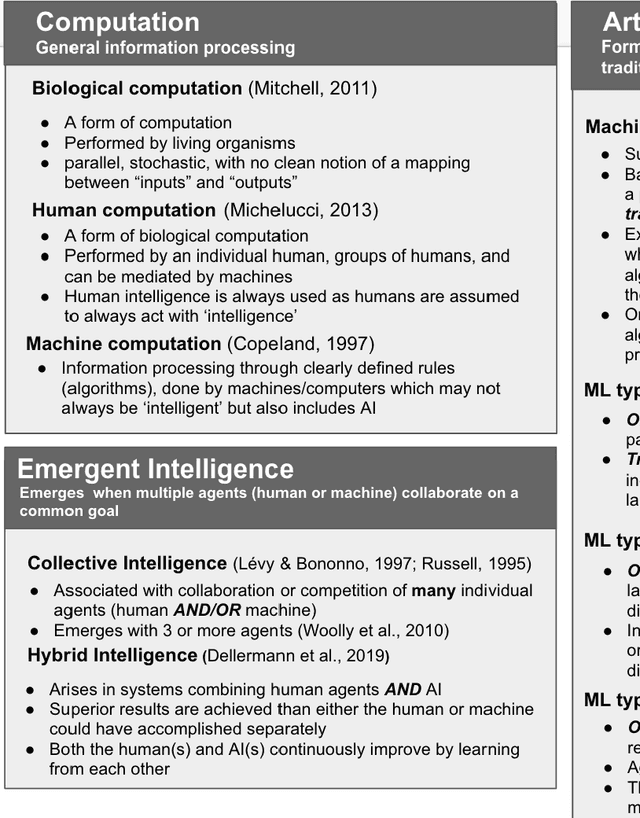
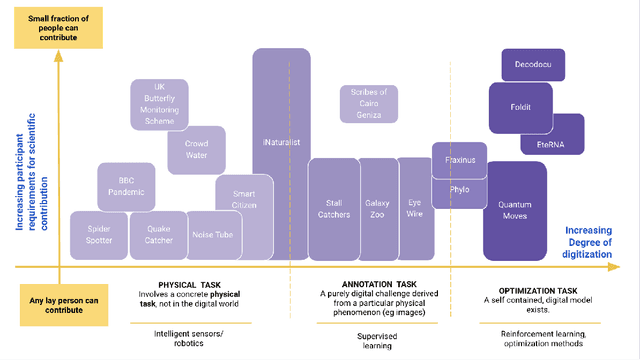

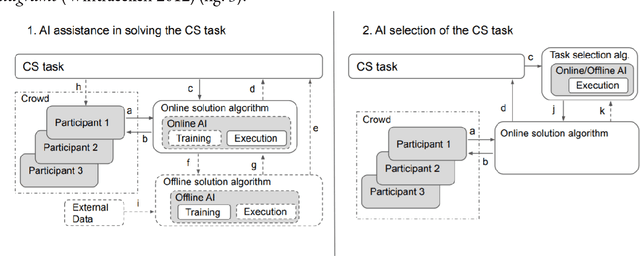
Abstract:Artificial Intelligence (AI) can augment and sometimes even replace human cognition. Inspired by efforts to value human agency alongside productivity, we discuss the benefits of solving Citizen Science (CS) tasks with Hybrid Intelligence (HI), a synergetic mixture of human and artificial intelligence. Currently there is no clear framework or methodology on how to create such an effective mixture. Due to the unique participant-centered set of values and the abundance of tasks drawing upon both human common sense and complex 21st century skills, we believe that the field of CS offers an invaluable testbed for the development of HI and human-centered AI of the 21st century, while benefiting CS as well. In order to investigate this potential, we first relate CS to adjacent computational disciplines. Then, we demonstrate that CS projects can be grouped according to their potential for HI-enhancement by examining two key dimensions: the level of digitization and the amount of knowledge or experience required for participation. Finally, we propose a framework for types of human-AI interaction in CS based on established criteria of HI. This "HI lens" provides the CS community with an overview of several ways to utilize the combination of AI and human intelligence in their projects. It also allows the AI community to gain ideas on how developing AI in CS projects can further their own field.
 Add to Chrome
Add to Chrome Add to Firefox
Add to Firefox Add to Edge
Add to Edge